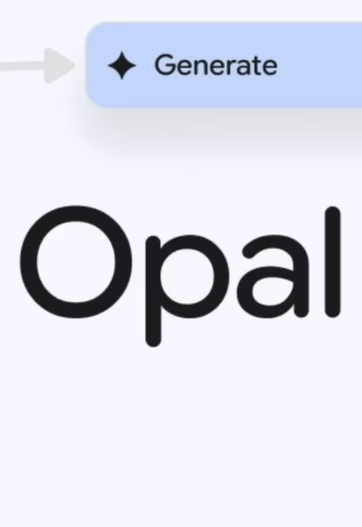Quran Slavery Approach: Islam’s Gradual Path to Abolition
Quran Slavery Approach, to properly evaluate Islam’s approach to slavery, we must first examine the 7th century Arabian context. At that time, slavery was deeply entrenched in all major civilizations, serving as a fundamental economic and social institution. However, what distinguished Islam was its revolutionary yet pragmatic methodology. Rather than demanding immediate abolition, which would have caused societal collapse, Islamic teachings implemented a comprehensive reform strategy. Specifically, this approach:
- First, acknowledged existing social structures
- Then, established ethical treatment standards
- Subsequently, created multiple emancipation pathways
- Ultimately, rendered slavery obsolete
Consequently, this balanced methodology demonstrates Islam’s profound wisdom in achieving sustainable social transformation.
https://whatshappening.pk/israel-houthi-strike-secret-meeting-targeted-in-yemen/
Quran Slavery Approach: Three-Phase Reform System

1. Restricting Enslavement Sources
Before Islam, individuals could be enslaved through various means:
- Primarily, unpaid debts
- Additionally, tribal conflicts
- Furthermore, being born to enslaved parents
- Lastly, criminal punishments
In contrast, Islamic law transformed this system by:
✓ Initially, limiting enslavement to prisoners of war
✓ Subsequently, requiring humane treatment standards
✓ Finally, encouraging immediate release (Quran 47:4)
2. Establishing Freedom Pathways
Moreover, the Quran and Sunnah introduced numerous emancipation methods:
Required Liberation Cases:
- Particularly, as atonement for specific violations
- Especially, when slaves initiated self-purchase contracts
Voluntary Acts of Virtue:
- Notably, allocating zakat funds for manumission
- Significantly, encouraging freeing slaves as pious deeds
- Importantly, permitting marriage routes to freedom
3. Revolutionizing Social Perceptions
Furthermore, Islamic teachings transformed societal attitudes by:
- First, mandating equal living standards
- Second, prohibiting all forms of abuse
- Third, granting legal protections
- Most importantly, affirming inherent human dignity
As a result, the Prophet Muhammad (PBUH) taught: “Your servants are your brothers whom God has placed under your care.”
Quran Slavery Approach: Comparative Historical Perspectives
| Reform Aspect | Islamic Method | Atlantic System |
|---|---|---|
| Timeframe | Gradually over 200 years | Abruptly ended |
| Economic Effect | Carefully managed adaptation | Severely disruptive |
| Social Integration | Successfully achieved inclusion | Problematic marginalization |
| Ethical Basis | Firmly rooted in religious duty | Largely political compromise |
Why Gradual Reform Proved Effective
Several key factors contributed to Islam’s successful approach:
Practical Considerations
Specifically, the phased method prevented:
- Potential economic collapse in agricultural societies
- Possible social instability for freed individuals
- Likely violent resistance to transformation
Moral Foundations
By contrast, it prioritized:
- First, changing societal attitudes
- Then, establishing basic rights
- Finally, making freedom attainable
Enduring Outcomes
As a consequence, this methodology:
- Steadily reduced slavery’s prevalence
- Effectively maintained community stability
- Permanently changed cultural norms
Addressing Common Misconceptions
Myth 1: “Islam originated slavery”
On the contrary, it reformed existing systems present across all ancient civilizations
Myth 2: “Islamic slavery resembled transatlantic trade”
In reality, it lacked racial basis and encouraged emancipation
Myth 3: “The Quran promoted slavery”
Actually, it declared freedom “the superior choice” (Quran 90:13)
Conclusion: Timeless Wisdom
In summary, Islam’s approach to slavery offers enduring insights about:
- Skillfully harmonizing ideals with practical realities
- Strategically implementing change through multiple channels
- Unwaveringly upholding human dignity
As scholar Jonathan Brown observed: “The Islamic system created conditions for slavery’s natural decline without societal trauma.” Ultimately, this measured, compassionate approach reflects Islam’s profound understanding of meaningful social reform.
STAY UPDATED WITH THE LATEST NEWS. FOLLOW US ON OUR SOCIAL MEDIA CHANNELS:
INSTAGRAM: https://www.instagram.com/whatshappening.pk








Israel-Iran Conflict Escalates: Fourth Day of Deadly Exchanges - What's Happening
16th Jun 2025[…] Quran Slavery Approach: Islam’s Gradual Path to Abolition […]
IDF Tehran Attack: Israel Strikes Iranian Capital in Major Escalation - What's Happening
17th Jun 2025[…] Quran Slavery Approach: Islam’s Gradual Path to Abolition […]